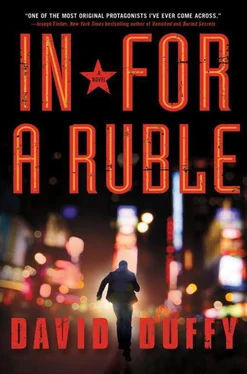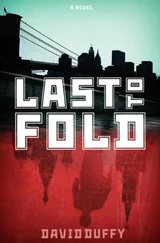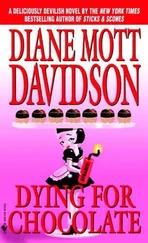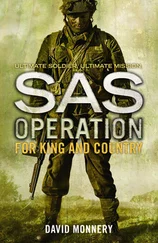“None. But he’s got Basilisk-like information about me. That says he knew my name, who I am.”
“If the first bug’s his, he’s had access to my e-mail exchanges with Leitz. You okay for the moment?”
“I can manage.”
He went to his office and I could hear him banging on his keyboard. I think I dozed again until he came back.
“Your bug’s working like a charm. We’ve got access to Leitz’s entire network, including servers and data storage. I can see the other bug, but I had to look hard to find it. Whoever it belongs to has sophisticated technology. I can also see some other weird shit, which I’ll check out as soon as I call Leitz.”
“Hold on.” I pulled myself upright, which got everything that had calmed down angry again. “We’re dealing with shrewd customers. Leitz has a big temper. You tell him he’s been invaded not once, but twice, by persons unknown, he’s likely to go ape and do something stupid, like yank out both bugs. Better we’re there when he learns the bad news. Set up a meeting for tomorrow morning.”
“He’s not going to like it.”
“A few hours’ delay? The bad guys’ bug’s been there for weeks. They already know everything they want to know. My bug isn’t harming anyone, except maybe me.”
“You gonna be able to make it uptown in the morning?”
“I made it downtown tonight.”
“That was more luck than skill. You’re gonna be hurtin’ tomorrow.”
“Tell Leitz we’ll meet him first thing at his office. That way I only have to make it to Midtown.” I hoped Nosferatu didn’t have a 24-7 watch on the place. But if he did, he was watching East Sixty-second Street too. He could have had someone follow me yesterday. Regardless, we were going to meet again sooner or later, despite his admonition.
“You look like hell, but I think you’re feeling better,” Foos said.
“Does that mean I can use the Basilisk?”
“Patience.”
“I can blame both you and Leitz for the way I look. I’m not sure getting pummeled by a guy who takes obvious pride in his work is on the AMA-recommended heartache recovery program.”
“What are we going to tell Leitz?”
“Deliver the Repin. My job was to show how to get access to his computers. Not my fault someone else got there first.”
“If I know you, you’re not leaving it there. Not after the beating you took. You could’ve told the vampire look-alike the truth about what you were doing and walked away.”
As usual, he was right. I wasn’t leaving it there. But, equally, I wasn’t certain how far I wanted to take it. I’d completed the job, and Leitz’s hedge fund and TV bid were his problems. That said, Nosferatu tugged as hard as he punched. I didn’t like being beat up in my adopted town. I liked less the idea that it could be done with impunity. I liked less still the idea there was someone out there with ready access to what should be either classified or well-buried information about my past.
“What’s Leitz going to want to do?” I asked.
“His first impulse will be to protect his data.”
“He’s behind the curve.”
“Yeah. But he’s gonna be plenty pissed, so you’re applying logic to an irrational situation.”
“So?”
“Once he calms down, I think we can convince him to chase the fox, if that’s what we want to do, and we send the fox in an unexpected direction.”
“Maybe, except I think this fox is a bear.”
I took the subway, which was a mistake. The rush hour train was fish-can jammed. Every jostle and bump felt as though Nosferatu had hit me again.
Force of habit, I suppose. The Moscow Metro is the only transport I use when I’m there. It’s efficient (not a ubiquitous Russian trait), and the stations contain better art than most museums. I used public transportation wherever I was stationed with the Cheka—New York, San Francisco, Washington, London—because it was one way to connect with the local populace. I’ve always tried to fit in, a legacy from the camps where one lived among multiple factions who didn’t always get along. I was a kid without formal allegiance—getting along was one way to make it through the day. I happen to like cars—I own two—but they do cut you off from your surroundings. They also provide cushioned seats and a steel wall of protection—more to the point this morning.
I’d awoken aching all over. Shots of pain stabbed my back and chest when I moved. I get up at six, a lifelong habit, and I have an exercise regimen I follow most mornings—either a five-mile run or three miles followed by a half hour of weights at the gym. I spent my childhood deprived of just about everything, food included, and I eat more than my share now to make up for lost time. I stay in shape on the theory that the average life expectancy of a Russian male is only sixty-five years at last count, and my upbringing already took its toll on mine. Pain trumped theory this morning.
My torso was painted purple and blue. My face was red, blood clotting along crisscrossing scratches on one side, black-and-blue bruises on the other, a shiner around the right eye. The colors extended well above the hairline I didn’t have. Overall, it wasn’t as bad as the beating Lachko’s thug had given me six months earlier, but I didn’t want to run into Nosferatu again anytime soon. Unless I was carrying a shotgun.
I made breakfast with extra coffee and logged on to Ibansk.com, the creation of a man known only as Ivan Ivanovich Ivanov, a muckraking impresario with a fondness for breathless hyperbole, who produces the most widely read blog in Russia. His supercharged collection of fact, insider rumor, speculation and high-heat opinion (his) gives readers—denizens, in his parlance—a seat at everything from top-secret Kremlin conferences to oligarch’s private rooms at the latest, hottest Moscow (or London or Paris or New York) nightclubs, as well as more intimate settings. He’s fun to follow and, more to the point, accurate in his barbs. I know because I know the list of people who’d like to see him executed. It starts at the top of the Kremlin and includes many of the men I used to work with.
I’d been keeping a close eye on Ivanov because I’d been a firsthand witness in December to what bore all the signs of the outbreak of Ibanskian gang warfare. After dinner with Sasha, I’d left him at the Pushkin Square metro station and decided to walk the mile or so down Tverskaya, one of the city’s oldest thoroughfares, known as Gorky Street in Soviet Times, to my hotel. I stay at the Metropole, a marvelous old place halfway between the Kremlin and Lubyanka, where many of the original Bolsheviks lived in the early days of the revolution. A mosaic on the façade still calls on the proletariat of the world to unite. The restaurant may be the most opulent room in Moscow. The ironies of Russian history captured in a single building.
A clear evening, not too cold. I was enjoying the winter air as I came up on one of the many restaurants/nightclubs/casinos that cater to the desires of the newly rich by giving them flashy, overpriced venues to show off their leggy girlfriends while trying to spend more on Champagne and caviar than the oligarch at the next table. A phalanx of Mercedes roared down the wide avenue and pulled into the Ibanskian equivalent of the VIP parking lot—the sidewalk in front of the club. Not the easiest thing because the sidewalk was already crowded with a dozen other Mercedes, BMWs, Bentleys, and Range Rovers. Several bodyguards, not bothering to hide their weapons, emerged from the new arrivals. Some rules are just common sense—never try to break up a dog fight, never walk voluntarily into a group of drawn weapons. I waited for a break in the traffic to cross to the far sidewalk.
Читать дальше












